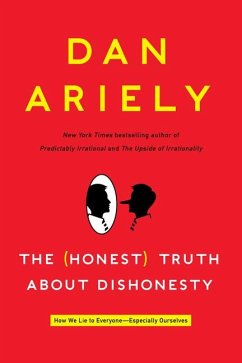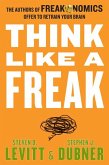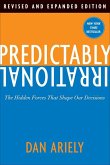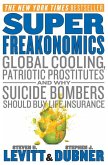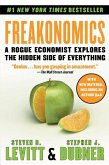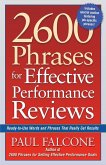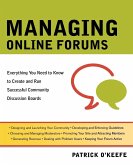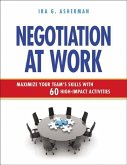"A lively tour through the impulses that cause many of us to cheat, the book offers especially keen insights into the ways in which we cut corners while still thinking of ourselves as moral people." - Time
Dan Ariely, behavioral economist and New York Times bestselling author of Predictably Irrational and The Upside of Irrationality, returns with a thought-provoking work that challenges our preconceptions about dishonesty and urges us to take an honest look at ourselves.
Does the chance of getting caught affect how likely we are to cheat?
How do companies pave the way for dishonesty?
Does collaboration make us more or less honest?
Does religion improve our honesty?
Most of us think of ourselves as honest, but, in fact, we all cheat. From Washington to Wall Street, the classroom to the workplace, unethical behavior is everywhere. None of us is immune, whether it's a white lie to head off trouble or padding our expense reports. In The (Honest) Truth About Dishonesty, award-winning author Dan Ariely shows why some things are easier to lie about than others; how getting caught matters less than we think in whether we cheat; and how business practices pave the way for unethical behavior, both intentionally and unintentionally. Ariely explores how unethical behavior works in the personal, professional, and political worlds, and how it affects all of us, even as we think of ourselves as having high moral standards. But all is not lost. Ariely also identifies what keeps us honest, pointing the way for achieving higher ethics in our everyday lives.
With compelling personal and academic findings, The (Honest) Truth About Dishonesty will change the way we see ourselves, our actions, and others.
Dan Ariely, behavioral economist and New York Times bestselling author of Predictably Irrational and The Upside of Irrationality, returns with a thought-provoking work that challenges our preconceptions about dishonesty and urges us to take an honest look at ourselves.
Does the chance of getting caught affect how likely we are to cheat?
How do companies pave the way for dishonesty?
Does collaboration make us more or less honest?
Does religion improve our honesty?
Most of us think of ourselves as honest, but, in fact, we all cheat. From Washington to Wall Street, the classroom to the workplace, unethical behavior is everywhere. None of us is immune, whether it's a white lie to head off trouble or padding our expense reports. In The (Honest) Truth About Dishonesty, award-winning author Dan Ariely shows why some things are easier to lie about than others; how getting caught matters less than we think in whether we cheat; and how business practices pave the way for unethical behavior, both intentionally and unintentionally. Ariely explores how unethical behavior works in the personal, professional, and political worlds, and how it affects all of us, even as we think of ourselves as having high moral standards. But all is not lost. Ariely also identifies what keeps us honest, pointing the way for achieving higher ethics in our everyday lives.
With compelling personal and academic findings, The (Honest) Truth About Dishonesty will change the way we see ourselves, our actions, and others.
"Ariely raises the bar for everyone. In the increasingly crowded field of popular cognitive science and behavioral economics, he writes with an unusual combination of verve and sagacity." - Washington Post
"I thought [Ariely's] book was an outstanding encapsulation of the good hearted and easygoing moral climate of the age." - David Brooks, The New York Times
"The best-selling author's creativity is evident throughout. . . . A lively tour through the impulses that cause many of us to cheat, the book offers especially keen insights into the ways in which we cut corners while still thinking of ourselves as moral people." - Time.com
"Captivating and astute. . . . In his characteristic spry, cheerful style, Ariely delves deep into the conundrum of human (dis)honesty in the hopes of discovering ways to help us control our behavior and improve our outcomes." - Publishers Weekly
"Ariely writes in a conversational tone one might associate with a popular teacher, providing readers with a working knowledge of what shapes our ethics-or lack thereof." - Kirkus Reviews
"Dan Ariely ingeniously and delightfully teases out how people balance truthfulness with cheating to create a reality out of wishful-blindness reality. You'll develop a deeper understanding of your own personal ethics-and those of everybody you know." - Mehmet Oz, MD; Vice-Chair and Professor of Surgery at Columbia University and host of The Dr. Oz Show
"Anyone who lies should read this book. And those who claim not to tell lies are liars. So they sould read this book too. This is a fascinating, learned, and funny book that will make you a better person." - A.J. Jacobs, author of The Year of Living Biblically and Drop Dead Healthy
"I was shocked at how prevalent mild cheating was and how much more harmful it can be, cumulatively, compared to outright fraud. This is Dan Ariely's most interesting and most useful book." - Nassim Nicholas Taleb, author of The Black Swan
"The Upside of Irrationality is an eye-opening, insightful look at human behavior, proving that defying logic is part of what makes us human." - Boston Globe
"As in his previous book, the best-selling Predictably Irrational, the experiments Ariely describes generate entertaining and often counterintuitive insights. . . . The result is more than just a handbook for business managers or a collection of snippets to relay at cocktail parties. . . . [D]eciding how to apply his insights is a pleasure that lingers long after the book is finished." - New York Times Book Review
"A taxonomy of financial folly." - The New Yorker
"An entertaining look at human foibles." - New York Times
"Through a remarkable series of experiments, Ariely presents a convincing case. . . . Required reading for politicians and Wall Street executives." - Booklist
"I thought [Ariely's] book was an outstanding encapsulation of the good hearted and easygoing moral climate of the age." - David Brooks, The New York Times
"The best-selling author's creativity is evident throughout. . . . A lively tour through the impulses that cause many of us to cheat, the book offers especially keen insights into the ways in which we cut corners while still thinking of ourselves as moral people." - Time.com
"Captivating and astute. . . . In his characteristic spry, cheerful style, Ariely delves deep into the conundrum of human (dis)honesty in the hopes of discovering ways to help us control our behavior and improve our outcomes." - Publishers Weekly
"Ariely writes in a conversational tone one might associate with a popular teacher, providing readers with a working knowledge of what shapes our ethics-or lack thereof." - Kirkus Reviews
"Dan Ariely ingeniously and delightfully teases out how people balance truthfulness with cheating to create a reality out of wishful-blindness reality. You'll develop a deeper understanding of your own personal ethics-and those of everybody you know." - Mehmet Oz, MD; Vice-Chair and Professor of Surgery at Columbia University and host of The Dr. Oz Show
"Anyone who lies should read this book. And those who claim not to tell lies are liars. So they sould read this book too. This is a fascinating, learned, and funny book that will make you a better person." - A.J. Jacobs, author of The Year of Living Biblically and Drop Dead Healthy
"I was shocked at how prevalent mild cheating was and how much more harmful it can be, cumulatively, compared to outright fraud. This is Dan Ariely's most interesting and most useful book." - Nassim Nicholas Taleb, author of The Black Swan
"The Upside of Irrationality is an eye-opening, insightful look at human behavior, proving that defying logic is part of what makes us human." - Boston Globe
"As in his previous book, the best-selling Predictably Irrational, the experiments Ariely describes generate entertaining and often counterintuitive insights. . . . The result is more than just a handbook for business managers or a collection of snippets to relay at cocktail parties. . . . [D]eciding how to apply his insights is a pleasure that lingers long after the book is finished." - New York Times Book Review
"A taxonomy of financial folly." - The New Yorker
"An entertaining look at human foibles." - New York Times
"Through a remarkable series of experiments, Ariely presents a convincing case. . . . Required reading for politicians and Wall Street executives." - Booklist

